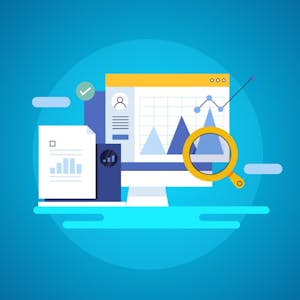Framework for Data Collection and Analysis
About this Course
This course will provide you with an overview over existing data products and a good understanding of the data collection landscape. With the help of various examples you will learn how to identify which data sources likely matches your research question, how to turn your research question into measurable pieces, and how to think about an analysis plan. Furthermore this course will provide you with a general framework that allows you to not only understand each step required for a successful data collection and analysis, but also help you to identify errors associated with different data sources. You will learn some metrics to quantify each potential error, and thus you will have tools at hand to describe the quality of a data source. Finally we will introduce different large scale data collection efforts done by private industry and government agencies, and review the learned concepts through these examples. This course is suitable for beginners as well as those that know about one particular data source, but not others, and are looking for a general framework to evaluate data products.Created by: University of Maryland, College Park

Related Online Courses
Closing the digital divide is essential for fostering a more inclusive and equitable society. Nearly one in three U.S. workers ages 16 to 64 have few or no digital skills; at least 38 percent of... more
Learn Tableau fundamentals, advanced visualizations, and integration with data science tools. Elevate your skills in creating impactful dashboards. Enroll now for hands-on experience and master the... more
Build your knowledge of the human body and take the first steps toward working in a medical or healthcare setting. This specialization provides immersive, interactive content to teach the... more
The \"Association Rules and Outliers Analysis\" course introduces students to fundamental concepts of unsupervised learning methods, focusing on association rules and outlier detection.... more
Learning Outcomes By the end of this course, learners will be able to: 1) Master the fundamentals and advanced features of ARM Cortex (STM32) microcontrollers. 2) Design and implement efficient... more








